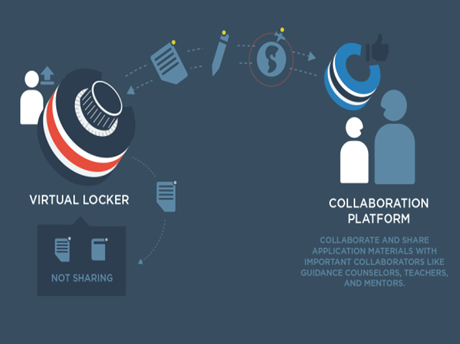SAT写作优秀范文赏析(4)
- 2017年08月10日15:05 来源:互联网
- 参与(0) 阅读(4163)
新SAT写作虽作为选考项目,但是我们千万不可以就放弃了。本文分享给大家SAT写作优秀范文,希望对大家有帮助。
SAT优秀作文欣赏
Directions: You have 25 minutes to plan and write an essay on the given topic. Do not write on another topic, as essays not on the topic receive a score of zero. You will be scored on how clearly and effectively you express your thoughts in writing. Develop your point of view carefully, as your writing will be evaluated on quality, not quantity; but do plan on writing several paragraphs to cover the topic adequately. Write legibly (print if necessary) and be specific.
Prompt
Think carefully about the issue presented in the following excerpt and assignment below.
A mistakenly cynical view of human behavior holds that people are primarily driven by selfish motives: the desire for wealth, fo power, or for fame. Yet history gives us many examples of individuals who have sacrificed their own welfare for a cause or a principle that they regarded as more important than their own lives.Conscience-that powerful inner voice that tells us what is right and what is wrong-can be a more compelling force than money, power, or fame.
Assignment
Is conscience a more powerful motivator than money, fame, or power? Plan and write an essay in which you develop your point of view on this issue. Support your position with reasoning and examples taken from your readings, studies, experience, and observations.
SAT Sample Essay - Score of 6 SAT作文6分范文
As society toils onward into its dreams of the future, the progress that accompanies this movement may be tainted by individual motives of avarice. However, as seen in various fields such as art, history, and science, the human conscience will limit the motivation of greed and inspire good works for the sake of morality. One’s sense of right and wrong forever impels one to be a decent, thoughtful person.
Such people widely populate the idealistic field of literature. Though novels may be rife with villainous, self-serving characters, only the heroic and moral personas emerge triumphant. For example, the well-known literary character Huckleberry Finn, from Twain’s Adventures of Huckleberry Finn, rescinds his claim to a sizable fortune if possessing such wealth would diminish his safety. Furthermore, Huck will risk himself to ensure the security of his close comrade Jim. His loyalty, a facet of one’s conscience, compels him to sacrifice his safety to ensure the well-being of others, which is more than money has accomplished in motivating Huck. Thus, a person, however fictional, considers the rewards of acting on conscience to be more fruitful than to be possessed by greed.
Although such characters are fictional, the same motives of charity and morality have inspired numerous people in history to set aside their desires. Lyndon B. Johnson, Former President of the United States, pushed the Civil Rights Act of 1964 through Congress motivated by conscience and a desire to correct the immorality of racism in society. Though some Senators stridently opposed such a bill, the power of motivation by conscience impassioned Johnson to strive even harder to remain loyal to the American precepts of equality. Such is fruition of conscientious actions.
Though the great figures of history seem out of reach in their stature, as an individual I am faced with moral dilemmas rather often. For example, I have been offered more weighty positions on the newspaper, but as a rule, I have always refused when there was someone better qualified than I. Consequently, their talents result in a more improved issue, thereby increasing the benefit for all.
There in lies the reason why we are compelled by conscience. Money, fame and power are fleeting and insubstantial, for they can never mend the integrity sacrificed to obtain them. It is only when we act in the name of what is right that all of our possible talents may benefit ourselves, our peers, and our ideals.
Score Explanation SAT写作6分范文点评
This response demonstrates clear and consistent mastery. The writer effectively and insightfully develops the point of view that "the human conscience will limit the motivation of greed and inspire good works for the sake of morality." By focusing on fictional, historical, and personal examples of conscience as a compelling force, the writer demonstrates outstanding critical thinking. The first example is the fictional character of Huckleberry Finn, whose "loyalty, a facet of one's conscience, compels him to sacrifice his safety to ensure the well-being of others." The writer then moves to the historical figure Lyndon B. Johnson, who "pushed the Civil Rights Act of 1964 through Congress motivated by conscience and a desire to correct the immorality of racism in society." Finally, the writer offers the personal example of declining "more weighty positions on the newspaper . . . when there was someone better qualified." This essay organizes these clearly appropriate examples well, demonstrating clear coherence
and a smooth progression of ideas. The essay exhibits skillful use of language and demonstrates meaningful variety in sentence structure ("Money, fame, and power are fleeting and insubstantial, for they can never mend the integrity sacrificed to obtain them. It is only when we act in the name of what is right that all of our possible talents may benefit ourselves, our peers, and our ideals"). Thus, this outstanding essay receives a score of 6.

























